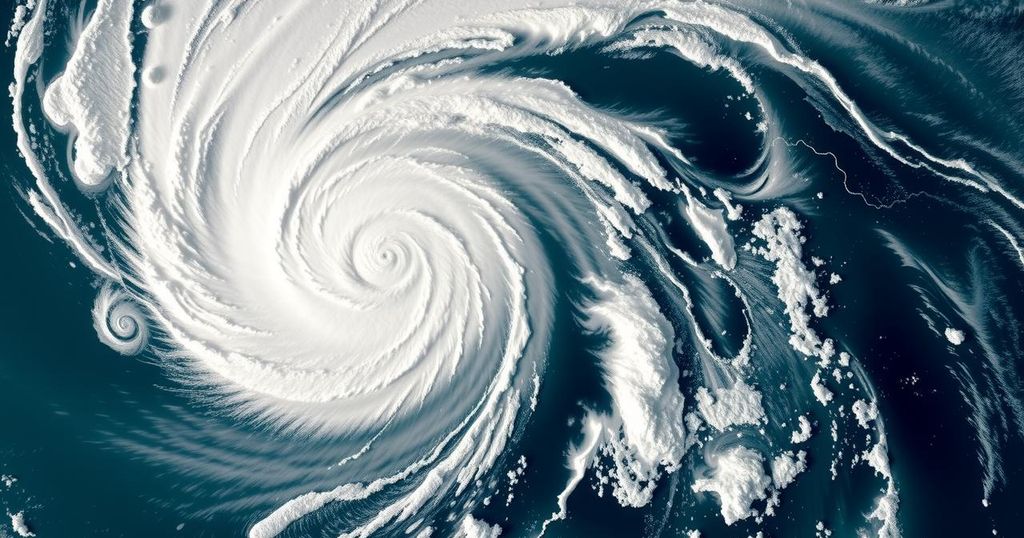Tropical Cyclone Chido Devastates Mayotte as It Approaches Mozambique

Tropical Cyclone Chido has caused significant destruction in Mayotte and is heading towards Mozambique, with authorities mobilizing for extensive rescue operations. The cyclone season typically brings severe flooding and humanitarian challenges exacerbated by climate change. Rescue efforts are ongoing, amidst concerns for millions in the storm’s path.
Tropical Cyclone Chido has severely impacted the French territory of Mayotte in the Indian Ocean, with winds exceeding 220 kilometers per hour resulting in widespread damage. Officials reported roof panels torn from residential structures and numerous power outages. Mayotte’s Prefect, Francois-Xavier Bieuville, indicated that this cyclone marked the most destructive weather event since 1934, as thousands remained without shelter in the aftermath. Emergency services are actively engaged in rescue efforts after the cyclone’s peak passed.
The storm is continuing on its path toward Mozambique, projected to arrive late Saturday or early Sunday, raising concerns for the welfare of approximately 2.5 million residents in the northern provinces of Cabo Delgado and Nampula. In addition, the nearby Comoros Islands are also experiencing effects from Chido, with authorities enacting strict maritime and travel restrictions to safeguard the populace.
In response to the cyclone, local authorities in Mozambique, Malawi, and Zimbabwe are poised for potential flooding and evacuations, underscoring a regional vulnerability to such natural disasters. The cyclone season poses significant threats, historically linked to severe humanitarian crises, further exacerbated by climate change. Cyclone Idai in 2019 resulted in over 1,300 fatalities, while Cyclone Freddy caused similarly grave consequences in 2023. These events are increasingly attributed to changing climate patterns which disproportionately affect impoverished nations in southern Africa.
Cyclone seasons in the southeastern Indian Ocean typically occur from December to March, posing significant risks to countries in southern Africa. These storms can lead to devastation, including flooding, landslides, and outbreaks of waterborne diseases such as cholera. The region has faced several severe cyclones in recent years, highlighting the increasing frequency and severity of such weather events, likely exacerbated by climate change, which disproportionately impacts less-developed nations contributing minimally to global warming.
In summary, Tropical Cyclone Chido has wrought extensive damage upon Mayotte and is projected to strike Mozambique imminently. With substantial emergency responses underway, regional authorities are preparing for extensive humanitarian needs as well as potential public health crises arising from flooding. The escalating severity of cyclones in this region raises urgent conversations about climate resilience and the challenges faced by vulnerable populations.
Original Source: www.voanews.com







